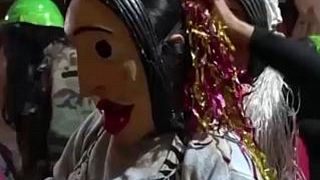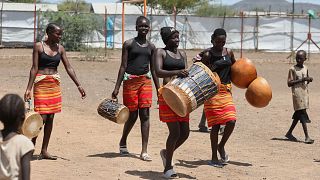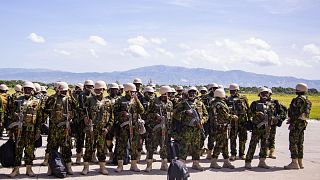Kenya
The Great Migration unwitnessed
The annual Great Migration of wildebeest is a breathtaking sight that usually draws tourists to Kenya’s Maasai Mara National Reserve from around the world. It's considered one of the most treasured experiences for enthusiasts of nature and wildlife; every year, around 1.5 million wildebeest - shadowed in separate groups by hundreds of thousands of gazelles and zebras - move in search of food and water.
The three groups of migrant grazers travel in a circular motion, eating grasses and then moving on, following the rains and the growth of new grass.
But with the COVID-19 pandemic hugely reducing international travel, this year's migration is going almost unwitnessed.
Milton Siloma is a driver and tour guide who’s been working at the reserve for thirty years. He’s never seen the reserve as it currently is, almost deserted:
"Like today, we are just alone in a spot like this - and this is all happening because COVID has really affected us.
"We are supposed to have thousands and thousands of tourists around, watching this phenomenon."
Local economy devastated
The Maasai Mara Game Reserve is central to the local economy. The county government usually collects substantial revenue from the money generated by the reserve's many activities, but all of these have been severely hit by the pandemic.
James Sindiyo, Chief Warden at the reserve, says the pandemic has been a massive blow:
"COVID-19 has really affected so many operations for us here in the reserve in the sense that the revenue, the funds that the county government was collecting from Maasai Mara National Reserve, has gone to zero because all the lodge facilities and all tourists facilities within the Mara, both in and out, they have all closed down.
"And we get much of our revenue from the park entry fees and other sources like the balloon safaris, balloon tariffs, even from the lodge rents - and all that has gone down."
Maasai badly affected
The situation is also causing hardship for local Maasai communities.
Kadele Kasare is a Maasai living next to the Game Reserve:
"Ever since the disease came, for almost three months we are in trouble as people from this region, because we live with the wild animals.
"The Maasai do not farm, we depend on visitors, but for now, because the tourists are blocked from travelling, we are having a lot of difficulties.
"The biggest problem is food, we are not getting enough food and at times when there is no money from the tourists, we sell our cows, livestock, but now even the market has been closed. So, we are facing a lot of difficulties."
Bigger problems on the horizon
James Sindiyo is aware of their hardship, but concerned about what that means:
"The surrounding communities, when they are desperate, then they can do anything to hunt and we have been getting such kind of cases of bushmeat, especially bushmeat trade. they kill just because they are desperate to get meat."
Indeed, wardens fear a larger problem could be on the horizon - they believe it's only a matter of time before commercial poachers try to take advantage of the situation which could affect endangered species.













00:28
Nairobi hawker shot at close range by police declared brain dead
00:48
Death toll in Kenyan anti-government protests rises to 16, says rights group
01:07
Kenya prepares for first anniversary of Finance Bill protests
01:52
UN's crucial humanitarian aid work faces a clouded future amid cuts in funds
02:00
Refugees in Kenyan camp face hunger after USAID funding freeze
01:00
Pix of the Day: June 19, 2025